
The International Society for Krishna Consciousness, abbreviated as ISKCON, known colloquially as the Movement of Hare Krishna, is a Gaudiya Vaishnava Hindu religious organization. It was founded on 13 July 1966 in New York City by A. C. Bhaktivedanta Swami Prabhupada. Its main headquarters is located today in West Bengal, India.

Hinduism has been spread in Russia primarily due to the work of scholars from the religious organization International Society for Krishna Consciousness (ISKCON) and by itinerant Swamis from India and small communities of Indian immigrants. While ISKCON appear to have a relatively strong following in Russia, the other organizations in the list have a marginal presence in this country. There is an active Tantra Sangha operating in Russia. According to the 2012 official census, there are 140,000 Hindus in Russia, which accounts for 0.1% population of Russia. A majority of Russian Hindus were Vaishnavites.
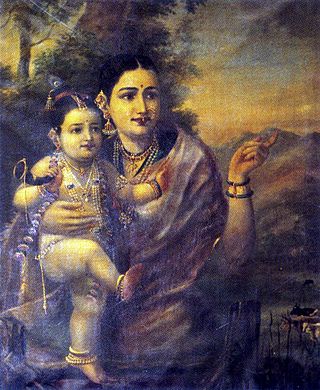
Krishna Janmashtami, also known simply as Krishnashtami,Janmashtami, or Gokulashtami, is an annual Hindu festival that celebrates the birth of Krishna, the eighth avatar of Vishnu. In certain Hindu texts, such as the Gita Govinda, Krishna has been identified as supreme God and the source of all avatars. Krishna's birth is celebrated and observed on the eighth day (Ashtami) of the dark fortnight in Shravana Masa or Bhadrapada Masa. This overlaps with August or September of the Gregorian calendar.
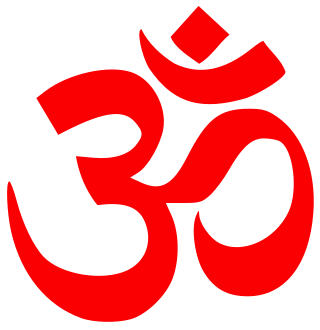
Hinduism is a minority religion constituting about 0.15% of the population of Austria. Hinduism is not one of the 16 recognised religions in Austria. The Austrian law allows religious groups not recognized as societies to seek official status as confessional communities with the Office for Religious Affairs. Hinduism is one of the eight confessional communities in Austria. However the Sahaja Yoga and the International Society for Krishna Consciousness are categorised as associations, not as a confessional communitIES.

Hinduism is currently practiced by a minority of residents of China. The religion itself has a very limited presence in modern mainland China, but archaeological evidence suggests a significant presence of Hinduism in different provinces of medieval China. Hindu influences were also absorbed in to Buddhism and got mixed with Chinese mythology over its history. Practices originating in the Vedic tradition of ancient India such as yoga and meditation are also popular in China.

Radhashtami is a Hindu religious day commemorating the birth anniversary of the goddess Radha, the chief consort of the god Krishna. It is celebrated in her birthplace Barsana and the entire Braj region on the eighth day (ashtami) of the bright (waxing) half of the lunar month of Bhadrapada. Radhashtami falls fifteen days after Krishna Janmashtami.

Hinduism is a minority religion in Korea. There are 24,414 Indians in South Korea, most of whom are Hindus. Through Buddhism, it has also had an indirect impact on certain aspects of traditional Korean thought. The Four Heavenly Kings that can be seen in Korean Buddhist temples originated from the Lokapālas. Also Skanda,Daeyejeok Geumgang, Sakra,Yama and Brahma were worshipped.

Hinduism is a minority religion practised by 0.6% of the population of Switzerland. Approximately 90% of Hindu adherents are foreign-born, and about a third of them have the status of refugee or asylum seeker. The Sri Sivasubramaniar Temple, located in the Sihl Valley in Adliswil, is the most famous and oldest Hindu temple in Switzerland, the Arulmihu Sivan Temple located in Glattbrugg is dedicated to Shiva, and the latest foundation is the Sri Vishnu Thurkkai Amman Temple in Dürnten in 2010.

Hinduism in Mongolia is a minority religion; it has few followers and only began to appear in Mongolia in the late twentieth century. According to the 2010 and 2011 Mongolian census, the majority of people that identify as religious follow Buddhism (86%), Shamanism (4.7), Islam (4.9%) or Christianity (3.5). Only 0.5% of the population follow other religions.
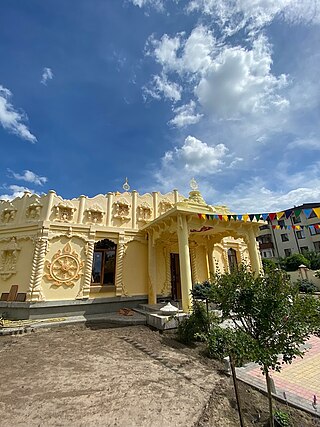
Hinduism is a minority religion in Ukraine. It is followed by 0.1% of the population, with a slightly higher proportion in Western Ukraine (0.2%). The majority of Ukrainian Hindus were Shaivites.

There is relatively little history of active practice of Hinduism in Romania, although many prominent Romanian thinkers have had an interest in Hindu thought, and since the Romanian Revolution of 1989 there have been some converts through the work of International Society for Krishna Consciousness. Hare Krishna devotee provide free food for life program and other cultural festivals around the country. Every year Hare Krishna devotee organise Rath Yatra of Lord Jagganath and thousands of people participate in the Rath Yatra.

Hinduism is a minority religion in Belgium. According to the PEW 2014, Hinduism is also the fastest growing religion in Belgium. Attempts have been done by the Hindu Forum of Belgium (HFB) to make Hinduism an officially-recognized religion in Belgium.

Hinduism was first introduced by Sindhi settlers who migrated to Ghana after India was divided in 1947. It was spread to Ghana actively by Ghana's Hindu Monastery headed by Swami Ghananand Saraswati and by the International Society for Krishna Consciousness (ISKCON). Hinduism is one of the fastest growing religions in Ghana.

Hinduism is a minority religion in Hungary. According to the 2022 census, there were 3,307 Hindus in Hungary.

Hinduism in Poland is a minority religion. Hinduism has spread to Poland through ISKCON since 1976. First groups of Polish devotees were established in Warsaw and Wrocław. The first Polish Hindu temple was established in 1980 in Czarnów, Lower Silesian Voivodeship. Main ISKCON temple is New Ramana Reti Temple in Mysiadło.

Hinduism in Israel refers to the Hindu population in Israel.

Hinduism in Greece has a small following. On March 1, 2006, the Greek government passed a law allowing cremation. This law was welcomed by the Indian community in Athens. In 2012, there were about 20,000 Hindus in Greece.
Sri Radha Shyamasundar Mandir is a Hindu temple located in Haebangchon, Seoul, South Korea. The temple opens each morning and evening at specific darshan times. Special programs are also held on Sundays, such as free children's Bal Vikas classes, yoga classes, and a special Sunday feast program with Bhagavad Gita lectures.
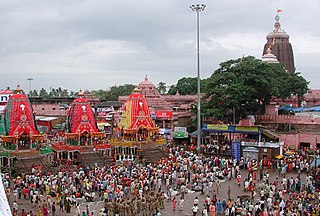
Ratha Yatra, or chariot festival, is any public procession in a chariot. They are held annually during festivals in India, Nepal and Sri Lanka. The term also refers to the popular annual Ratha Yatra of Puri. that involve a public procession with a chariot with deities Jagannath, Balabhadra, Subhadra and Sudarshana Chakra on a ratha, a wooden deula-shaped chariot.
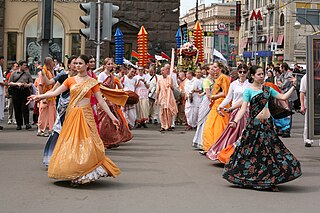
Festival of Chariots refers to the Ratha Yatra festivals run by the International Society for Krishna Consciousness (ISKCON). The main event is a chariot procession through the streets. The procession may then be followed by performing arts presentations on the stage and visiting various booths encamped at a park site. The festivals involve chants, the arts, music, and free vegetarian feasts that can be seen over the world but specifically in the United States. ISKCON, commonly referred to as Hare Krishna is a branch of Hindu religiosity. ISKCON have used the practice of Hindu festivals as an important element of Hare Krishna expression, and is a recognisable feature of their appearance in the public realm. Kirtan is an element that is common to all ISKCON festivals. Kirtan is a process of musical worship, that is accessible for group participation and as described by Edwin Bryant as “Krishna in vibratory form”. The practice of kirtan are melodies, mantras, spiritual texts that proclaim God's name in his many forms. The ‘Festival of India’ is the International society for Krishna consciousness conveying Indian expression in the global sphere.













